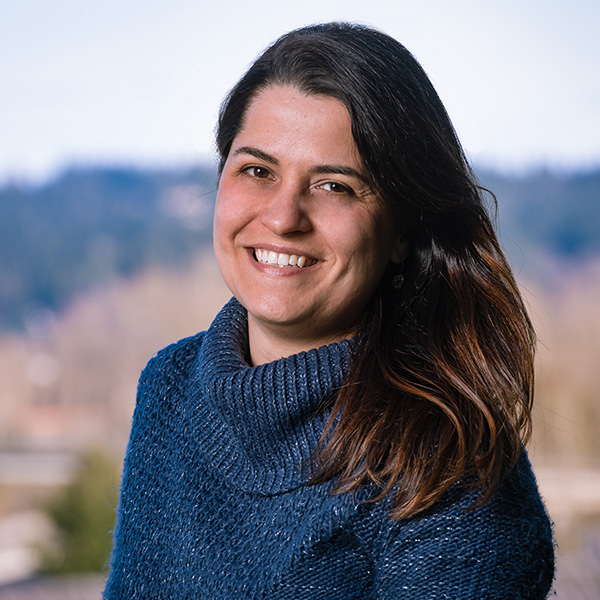Paola Rodríguez Hidalgo, Associate Professor

Contact
Location: UW2-325
Phone: 425-352-3381
Email: paola@uw.edu
Biography
Dr. Rodríguez Hidalgo came to the University of Washington from Humboldt State University in northern California where she was Assistant Professor of Physics & Astronomy. Born in Colombia and raised in Spain, she studied Physics with specialization in Astrophysics at the Universidad Complutense de Madrid and the Universidad de La Laguna (Instituto de Astrofisica) de las Islas Canarias. She earned her Ph.D. and M.S. in Astronomy from the University of Florida and held postdoctoral fellow and research associate positions at the Pennsylvania State University and York University in Toronto, Canada. She was also a visiting assistant professor at the University of Toronto.
She loves astronomy, music, and traveling and is passionate about education and helping students succeed in their academic careers.
Research
Dr. Rodríguez Hidalgo focuses on using spectroscopy to understand the Universe around us—from supermassive black holes in the centers of massive galaxies where accretion disks are formed (a phenomenon called “Quasars”) to the atmospheres of extrasolar planets. Her study on quasar outflows has been carried out using data from, among others, the Hubble Space Telescope, Chandra X-Ray Observatory, Gemini Observatory, and the Sloan Digital Sky Survey.
Her passion for education has led her to study the benefits of teaching using community-based learning approaches, with the goal of a more inclusive and diverse scientific community and a more scientifically literate citizenry. In particular, she works towards helping women and people of color sense they belong in STEM/STEAM and increasing the retention of minority populations in science.
Education
University of Florida, Gainesville, FL
Ph.D. Astronomy
M.S. Astronomy
Universidad de La Laguna, Canary Islands, Spain
B.S. Physics
Teaching Interests
- General Astronomy and Astrophysics
- Galactic and Extragalactic Astronomy
- Modern Physics
- Programming and Computational Physics
- Life in the Universe
- Physics of Sound
